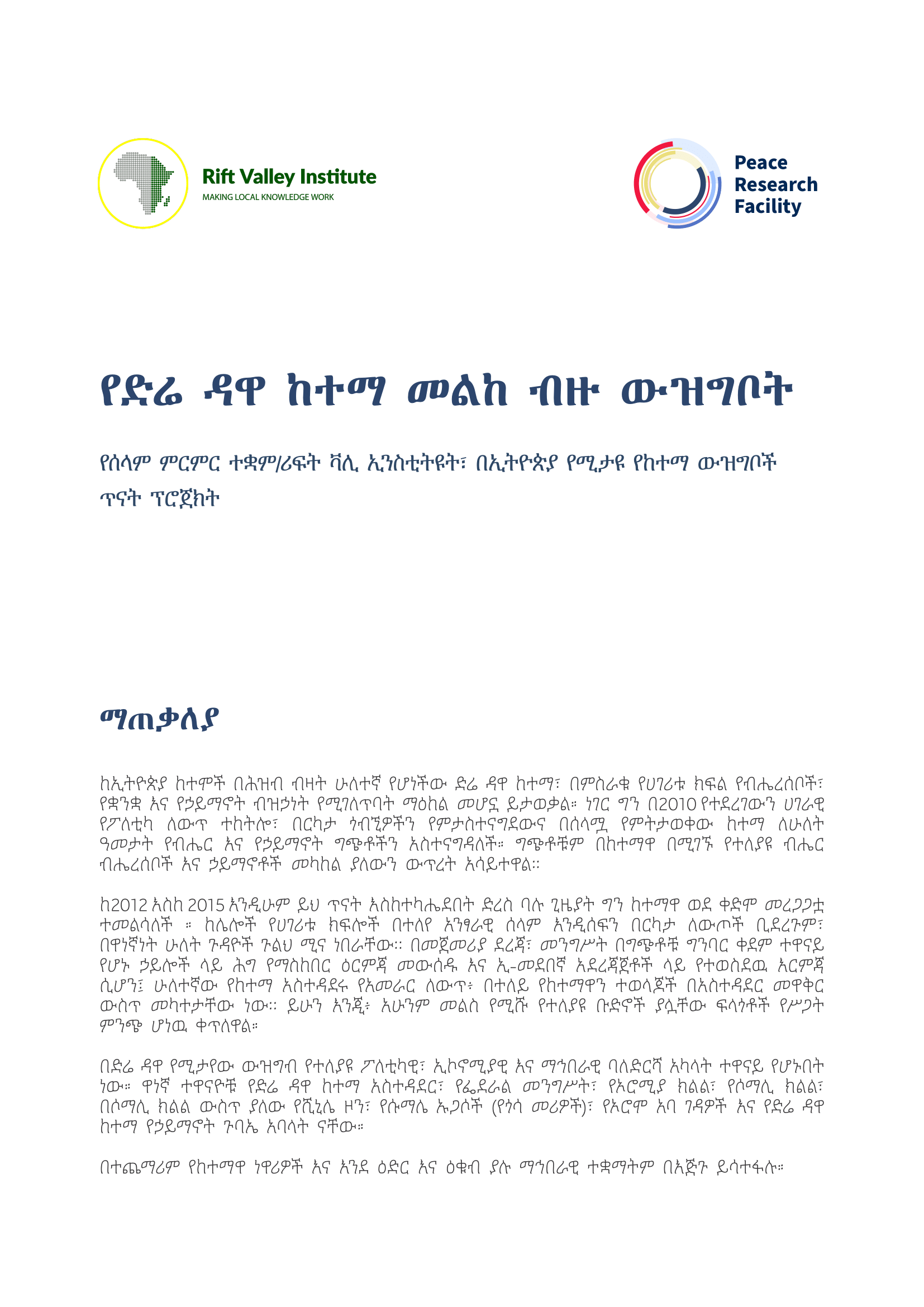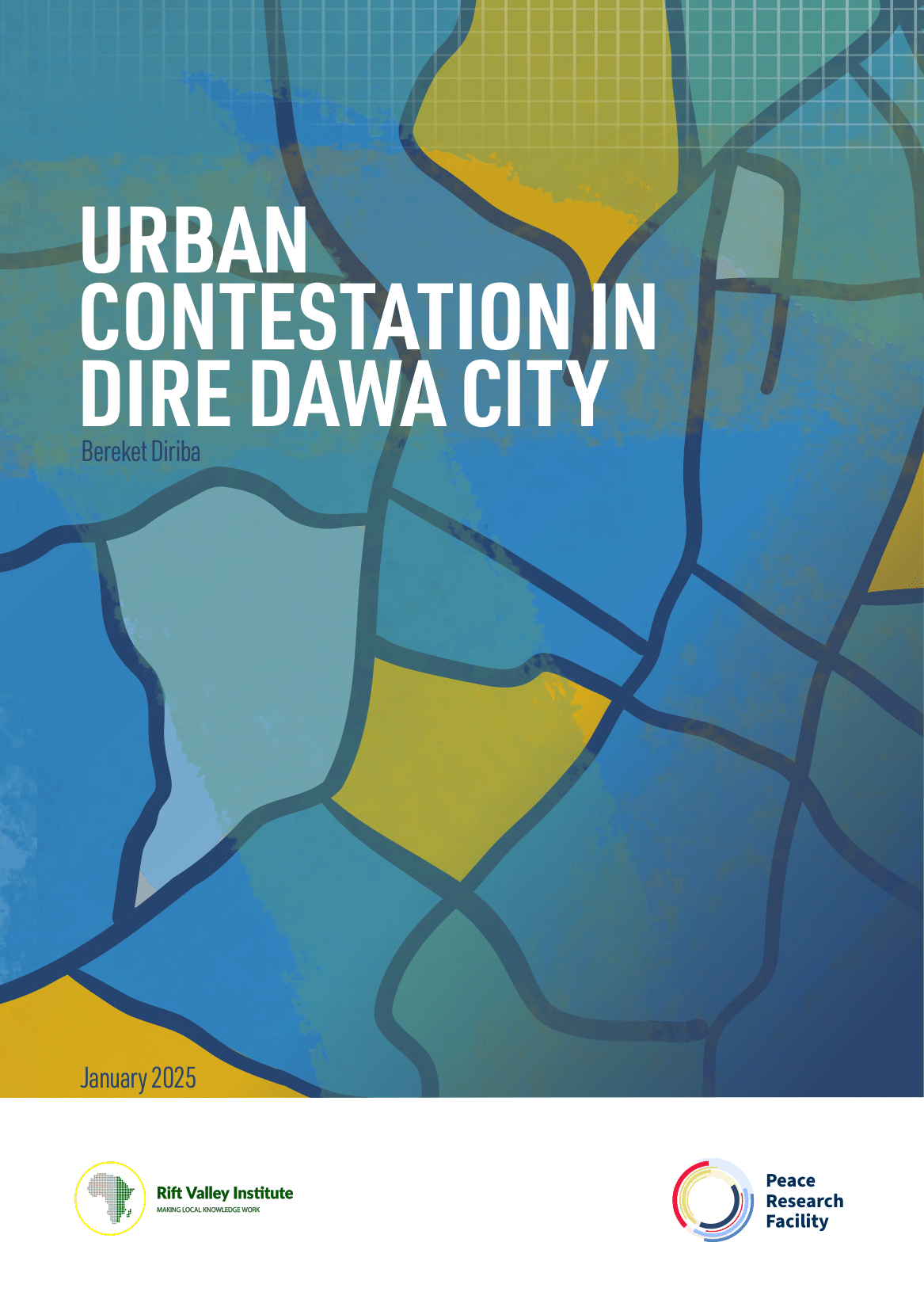ከኢትዮጵያ ከተሞች በሕዝብ ብዛት ሁለተኛ የሆነችው ድሬ ዳዋ ከተማ፣ በምስራቁ የሀገሪቱ ክፍል የብሔረሰቦች፣ የቋንቋ እና የኃይማኖት ብዝኃነት የሚገለጥባት ማዕከል መሆኗ ይታወቃል። ነገር ግን በ2010 የተደረገውን ሀገራዊ የፖለቲካ ለውጥ ተከትሎ፣ በርካታ ጎብኚዎችን የምታስተናግደውና በሰላሟ የምትታወቀው ከተማ ለሁለት ዓመታት የብሔር እና…
RVI publishes books, research reports, research papers, briefings and meeting reports in a range of formats. Publications cover policy, research, arts, culture and local knowledge in the countries of eastern and central Africa. Research publications—books, reports and papers—are peer-reviewed. Some RVI publications are also available in French and/or Arabic.
The RVI is a signatory of the Budapest Open Access Initiative (2001); all publications are free for download in PDF format under Creative Commons licences. The views expressed in books and reports published by the RVI are those of the authors, not the Institute.
SEARCH
PUBLICATION TYPE
LANGUAGE
REGION
COUNTRY
Dire Dawa, the second-most populous city in Ethiopia, is known as a melting pot of ethnic, language and religious groups in the east of the country. In the aftermath of the 2018 national political transition, however, the city, which…
Recent Publications

EWNET Writes: Writing Workshop Session I
December 18, 2025
The Ethiopian Women Researchers Network (EWNET) inaugural writing workshop series aims to not only provide women researchers with uninterrupted time for their scholarly projects, but also build a supportive academic community. The first session, entitled ‘EWNET Writes: Writing Workshop Session

SSC-Khaatumo: Perspectives on the significance and implications of its formation
December 12, 2025
On 15 April 2025, during a visit to the city of Las Anod in Sool, Prime Minister Hassan Abdi Barre officially declared the federal government’s recognition of SSC-Khaatumo (SSC-K hereafter) as a federal member state, marking an important milestone in

Aid and Conflict Sensitivity in Contemporary Ethiopia
November 17, 2025
This study assesses conflict sensitivity practices among humanitarian, development and peacebuilding (HDP) actors in Ethiopia. It seeks to raise awareness and foster a deeper understanding of the evolving aid landscape in the country while analysing the challenges that affect conflict-sensitive


